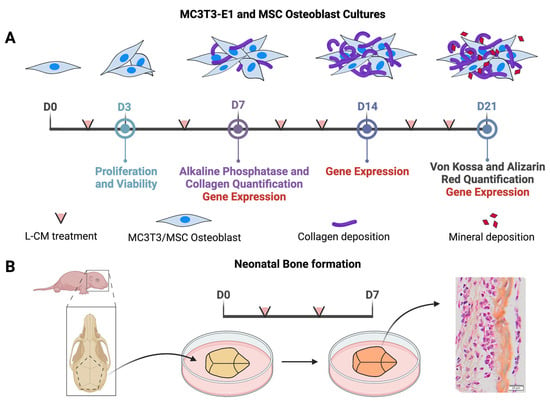By: Ernesto, Andrea L.,, Fayez F., Hope C.,, Michael, Jacob, Andrew L., Safadi, Douglas, Ball, Robinson, Kelly, Solorzano, Rama, Alejo, Gabrielle T.,
Complex lymphatic anomalies (CLAs) are a set of rare diseases with unique osteopathic profiles. Recent efforts have identified how lymphatic-specific somatic activating mutations can induce abnormal lymphatic formations that are capable of invading bone and inducing bone resorption. The abnormal bone resorption in CLA patients has been linked to overactive osteoclasts in areas with lymphatic invasions. Despite these findings, the mechanism associated with progressive bone loss in CLAs remains to be elucidated. In order to determine the role of osteoblasts in CLAs, we sought to assess osteoblast differentiation and bone formation when exposed to the lymphatic endothelial cell secretome. When treated with lymphatic endothelial cell conditioned medium (L-CM), osteoblasts exhibited a significant decrease in proliferation, differentiation, and function. Additionally, L-CM treatment also inhibited bone formation through a neonatal calvaria explant culture. These findings are the first to reveal how osteoblasts may be actively suppressed during bone lymphatic invasion in CLAs.












